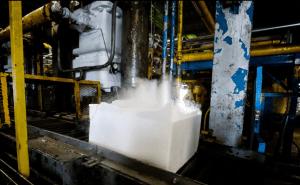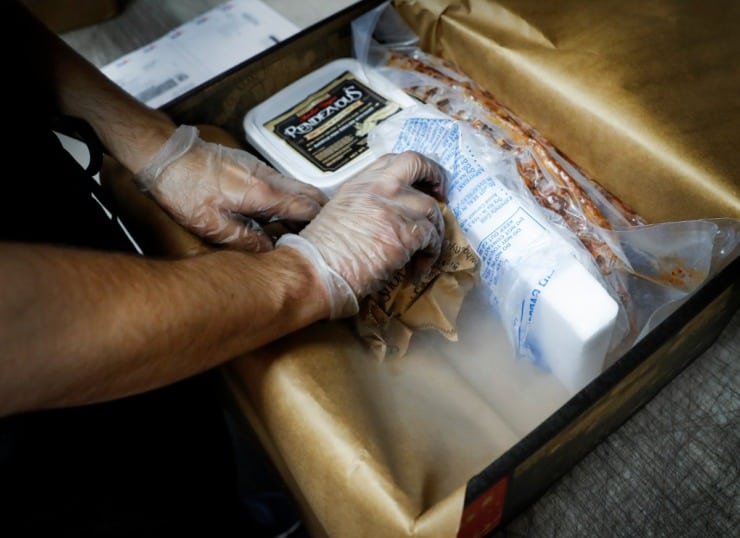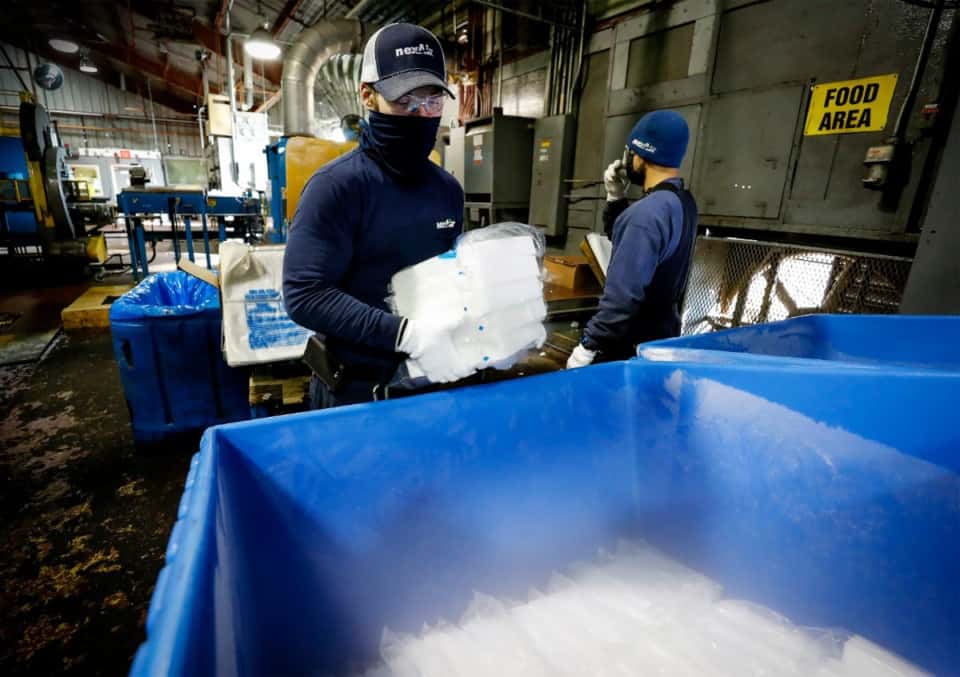Reprinted from Tom Bailey | Daily Memphian
NexAir forecasts that its sales of dry ice this year will grow 16%, but not because of the well-publicized Pfizer vaccine that must be shipped and stored in ultra-cold storage temperatures.
Like the vaccine that requires storage at minus-70 degrees, the growing demand for nexAir’s dry ice is related to COVID-19.
But the dry ice nexAir makes at its plants in Millington and Brandon, Mississippi, is in even more demand by companies that ship other products, especially perishable foods.
More people are social distancing, buying online and having their purchases delivered to their front doors. So much so, nexAir is studying ways to expand capacity at its Brandon or local plant, nexAir Carbonic at 5808 Old Millington Road in the Woodstock community.
The company’s main business is selling atmospheric gases and welding supplies. NexAir employs about 800 people in 80 sites spread across 10 states. Dry ice comprises a small portion of total revenue.
But nexAir had expected to sell a lot of dry ice for those Pfizer vaccine shipments.

A block of dry ice travels down a conveyor belt at the nexAir plant in Millington on Tuesday, Feb. 2. (Mark Weber/Daily Memphian)
Based on all the inquiries from potential shipping customers, the Memphis-based company even established a COVID-19 task force. Members of different nexAir departments met every Monday morning to ensure all facets of the company were coordinated for the effort.
“Our phone was ringing off the wall about dry ice for vaccines,” recalls Steve
Mainly, those vaccine-related phone calls involved nexAir fielding questions and educating potential customers about dry ice. But most of the calls never transitioned into sales orders.
One reason involved the load sizes nexAir can deliver. The company is geared to deliver truckload quantities, from about 600 pounds up to about 1,100 pounds.
Some of the requests were for much smaller deliveries to clinics and hospitals.
“We don’t have the distribution capability to deliver to small-end users,” Atkins said.

A Rendezvous employee uses Memphis-based nexAir dry ice while packing barbecue shipping packages on June 15, 2020. Dry ice sales have increased due to the pandemic and all the extra shipping of foods. (Mark Weber/Daily Memphian file)
Also, it turned out that a Pfizer-related plant in the upper Midwest added dry ice production, and had another supplier bring ice to the site.
The Pfizer vaccines are shipped in boxes with 50 pounds of dry ice, Atkins said. That keeps the vaccine cold enough for five days.
“Once they take them out of refrigeration to start putting it into arms, they have five days to administer those vials of vaccine,” Atkins said. “Then it becomes less of an issue to store it.
“… That dramatically decreased the actual demand” for dry ice, he said. “That, plus the Moderna and other vaccines coming out that don’t require any (deep) refrigeration. That’s great. Makes it easier to get into everybody’s arm.”
NexAir makes several forms of dry ice, including pellet-size ice for customers like chicken processors and ice blocks for shippers.
The company recently lost one of its two, big chicken-processing customers, which initially upset Atkins.
“But now we’ve seen what happened with the shipping side” that uses blocks of ice, he said. “We’re better off.”
The pellet-using customer involved high-volume, low-margin sales. Shifting more of the sales volume from pellets to blocks is more profitable for nexAir.
In fact, he said, “we’re adding two new block presses and a conveyor-and-saw system to our Mississippi plant. Our block ice (capacity) is close to being maxed out. And we thought we had a lot more room for growth.”
Seven people work at the Millington plant and nine are employed in the Brandon operation.
NexAir’s biggest customer for block ice is Corky’s. The company may be better known for its barbecue restaurants, but its ownership operates a 115,000-square-foot food manufacturing plant in Southeast Memphis. It makes and distributes retail food products.
Corky’s operation called Prime Time Strategic Partners provides fulfillment and shipping of refrigerated and frozen foods for food brands across the nation.
(Editor’s note: nexAir CEO Kevin McEniry is a board member for Memphis Fourth Estate, which owns The Daily Memphian.)



